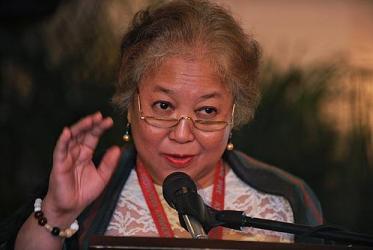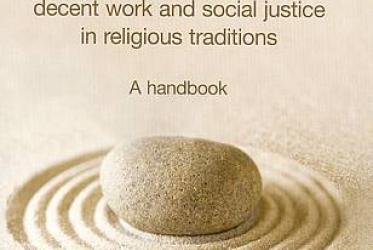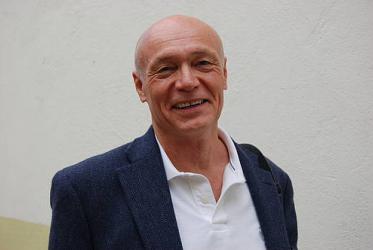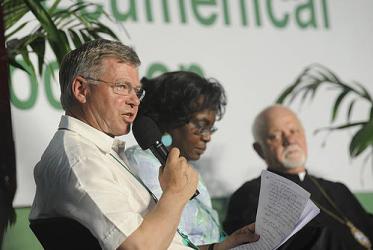Displaying 141 - 160 of 166
30 April 2012
Churches on the move amidst changing landscapes
26 March 2012
Christian leaders from Odisha visit WCC offices
16 March 2012
Christian leaders “fast for fair food”
02 March 2012
Working together for social justice and decent work
23 January 2012
Canadian churches participate in monitoring of Taiwan elections
12 January 2012
WCC urges protection of religious minorities in Pakistan
23 December 2011
Just peace, prayer and a common witness keep church relevant
22 December 2011
WCC general secretary express condolence over Vaclav Havel
22 December 2011
Human rights advocacy is a prophetic witness of the churches
01 November 2011
Sustainable water projects need ownership
28 October 2011
Ecumenical journal analyses greed in global economics
27 October 2011
WCC general secretary: Peace and justice gain momentum
14 September 2011
WCC Executive Committee in Ethiopia exposed to famine situation
13 September 2011
Building peace in solidarity with the poor
12 September 2011
What does “God's security” look like?
24 May 2011













